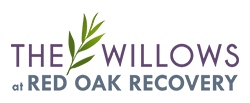There are many reasons why a person might choose to use drugs or alcohol. People often turn to them for social occasions, pain relief, experimentation, rebellion, boredom, or self-medication. In any one of these situations, it can become possible for a person to become addicted. Anytime a person becomes addicted and seeks treatment at The Willows at Red Oak, we identify underlying reasons for the substance use disorder. This identification helps specialists better understand and treat the person, especially with a dual diagnosis or co-occurring issue. Post-traumatic stress disorder (PTSD) is one of those potential mental health issues that may require a unique approach in substance use treatment. For treatment for both PTSD and addiction, please contact the Willows at Red Oak today at 855.773.0614.
What Is PTSD?
PTSD is a type of anxiety disorder caused by a traumatic event or events in a person’s life. Examples include military combat, car accidents, physical or sexual abuse, and even natural disasters. While it is not as common as other anxiety disorders, it can still affect a person deeply enough to turn to unhealthy coping strategies. Individuals with PTSD can have average days but will experience periods of sustained and elevated psychological distress after exposure to a traumatic event.
PTSD typically appears within three months after the triggering event but can come on much later as well. A PTSD diagnosis usually occurs after a person sustains symptoms for a month or longer and they severely interfere with daily life. The symptoms that often occur with PTSD, including flashbacks, nightmares, and worsening mental health issues, can be triggers for substance use. Other signs of PTSD include:
- Trouble sleeping or concentrating
- Feeling numb or checked-out
- Experiencing behavioral or attitude changes
- Avoiding people, places, or activities
- Being unable to remember important details related to the trauma
- Persistent negative feelings about oneself or others
- Ongoing fear, anger, guilt, or shame
- Hyperarousal and hypervigilance
If you’re experiencing these symptoms, it’s vital to seek treatment as soon as possible.
How Are PTSD and Substance Use Connected?
Substance use often contributes to or is due to co-occurring mental health issues. Whether depression or anxiety leads to substance abuse or the use of drugs or alcohol exacerbates a person’s mental health issues is irrelevant. We recognize that each person’s journey is different. Many people who have PTSD attempt to self-medicate as one of their coping mechanisms, which can quickly lead to abuse. The substance of choice is most often alcohol, but it can also be drugs such as cocaine. Those with PTSD turn to drugs and alcohol for help with activities such as:
- Falling asleep
- Slowing thoughts
- Avoiding memories
- Escaping their problems
- Regulating their mood or normalizing their thoughts
- Numbing themselves from the pain
The problem is that using drugs and alcohol can make these problems worse, not better. Getting treatment for both can be the real solution.
How Can Dual Diagnosis Treatment Help?
There is no denying that people seeking treatment for PTSD are much more likely to struggle with a substance use disorder. Both are chronic, debilitating conditions, and when they co-occur, the course of treatment can be more complex. Not only that, but there are often less favorable treatment outcomes compared to those with only one of the two disorders. However, treating the two at the same time has proven effective in many cases.
Having a dual diagnosis treatment program at your side can help when there are co-occurring disorders such as PTSD and substance abuse. When you can tackle both the substance use and the underlying issues simultaneously, there is a better chance of success and recovery. Using multiple therapy strategies along with other recovery methods gives specialists and clients more tools in their arsenal.
The Willows at Red Oak Offers Dual Diagnosis Treatment
If you or someone you love is struggling with a dual diagnosis of PTSD and substance use, the Willows at Red Oak can help. We only treat women at our center using one of many therapy strategies for a targeted approach. We are also clinician-run, so everyone who works here is an expert in addiction treatment. Visit our website or call us at 855.773.0614 for more information about the treatment options available.




